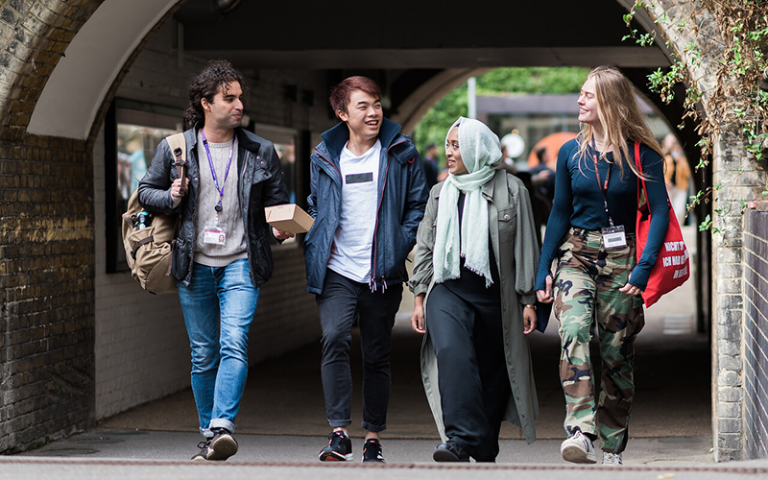Staying safe as a student
6 February 2023
Find information and quick contacts below for how to get help in an emergency situation, how to report crimes, what support you can access and some general guidance on staying safe during your time as a student.

What do I do in an emergency?
If you witness or experience a serious emergency, such as a crime, a fire, a serious accident or a medical emergency, you should call 999. You can also access support using the details below.
On campus
- UCL has security cover 24/7. Call +44 (0)20 7679 2222 or extension 222 from a UCL landline. UCL Security will contact the emergency services on your behalf.
- SafeZone is an app available to all UCL students and staff to make it easier for you to contact UCL Security directly from your mobile device. Find out more information about SafeZone and how to download it here.
Off campus
- In an emergency, call 999 and ask for the appropriate service (police, ambulance, fire brigade).
- Police non-emergency number – call 101. This number can be used to report crimes that do not need an emergency response, such as a bike theft.
- NHS non-emergency number – call 111 or use the 111 Online service. This number can be used if you experience a medical problem that you do not feel is an emergency, or if you are unsure where to access the correct health care support.
Raising security and safety concerns through a conversation
- If you are not in need of urgent help, but you’d like to raise any concerns about safety or security, and would like to talk through any issue in a confidential and supportive conversation then Sophie, your Crime Prevention and Personal Safety Advisor is always here to talk to you.
- Sophie Bimson, s.bimson@ucl.ac.uk.
How do I report a crime?
- If you want to report anything to the police when it is no longer an emergency, call 101, report a crime online on the Metropolitan Police website or visit a police station. In an emergency, remember to always dial 999 straight away.
- If you're in London, find your nearest police station on the Metropolitan Police website.
- If you are based elsewhere in the UK, use the 'Find a force by area' search on the Police.UK website.
- Visit the Metropolitan Police website to report a crime.
How do I access support following an emergency or a crime?
Wellbeing support
- Student Support and Wellbeing services offer a safe, confidential and non-judgemental space. All support services are free of charge and open to all UCL students of all levels. Support is offered 24-hours a day, seven days a week, 365 days a year on the phone through +44 (0) 808 238 0077.
- The charity 'Victim Support' offers free and confidential advice to people affected by crime. Speak to a specialist by calling the helpline on 08 08 16 89 111.
Crisis support
- Student Support and Wellbeing does not offer emergency support. If you're in immediate danger of hurting yourself or others:
- Go directly to the Accident & Emergency (A&E) department of your local hospital to get help.
- UCLH is the nearest A&E department to UCL’s main campus
- Call 999 to request an ambulance if you are unable to reach the hospital yourself
- If you're feeling distressed and need urgent support:
- Contact your GP surgery to request an emergency appointment
- If your GP surgery isn't open, call the free NHS out-of-hours medical line on 111 for help accessing the right services
- You can call the Samaritans on 116 123 to talk to someone at any time, day or night
- Nightline are a listening service for students, by students - they're available overnight via live web chat 6pm – 2am.
Support following bullying, harassment, sexual misconduct or hate crime
- If you feel unsafe and are on campus, please call Security, who will liaise with emergency services if you are on campus, on 020 7679 2108 or extension 32108, or dial 222 in an emergency. UCL Security can also be reached directly by SafeZone app.
- Speak to one of our Disability, Mental Health and Wellbeing Advisers in a same-day appointment, which can be booked through the askUCL student enquiries system. Our Advisers will have a supportive conversation with you, will listen to any issues you may be experiencing or have experienced in the past, and will help you access support if needed for any wellbeing matters affecting your ability to study. Find out more about seeing an adviser.
- Request to speak with an advisor on Report + Support. An advisor can: talk through the University's procedures, inform you on how to make a complaint and let you know what support is available, in confidence.
- Learn more about what’s meant by sexual consent and ending sexual violence at UCL. Complete I Heart Consent interactive online training.
Report a hate crime confidentially through the Students’ Union UCL
Advice on staying safe
London is a very safe city, but there are a number of simple steps you can take to ensure that you stay safe. There is a range of information and guidance on our Staying Safe at UCL webpages including information on tailgating, bike security, laptops and valuables, cash machine security, mobile phone snatching and terrorism.
The articles below also provide some essential advice on:
- Staying safe online and avoiding fraud and scams
- Top safety tips for living in the capital
- Safe travel around London
- Staying safe on and around campus
- Hate crime
- Unhealthy relationships and domestic abuse
- Being an active bystander
The British Council has created a very useful guide on how students can stay safe in London and the UK. Please visit their website to read their online guide.
 Close
Close

